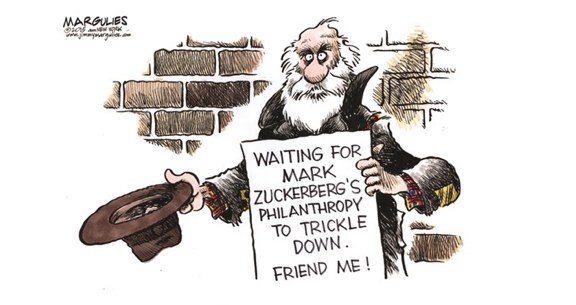CommentsGUEST COMMENTARY-Imagine the following: A candidate for elected office in California says to donors and voters that, if elected, he will innovate state services so they are as consumer-friendly and digitally-available as, say, Apple’s services. But the candidate also seeks the political support of government employees (e.g. school district and DMV employees) for whom such innovation would likely mean fewer jobs and stricter performance measures. Given that government employees are the largest contributors to political campaigns in California, what do you think the candidate, if elected, will actually do? The answer: Not innovate.
A politician cannot both be an innovator and be hostage to innovation opponents.
That’s an example of Political Dissonance, which is the chasm between political rhetoric and political action. Another example is that of politicians who claim they’re working to improve access for California’s 14 million Medicaid beneficiaries but block legislation that would boost the availability of health care providers.
Political Dissonance is another reason why political philanthropists should focus less on what candidates say and more on what they do. That would also align philanthropists’ political and non-political spending behaviors.
When purchasing a stock, car, computer or building or selecting an airline, lawyer, accountant or money manager, most people don’t base decisions significantly on what salespeople say. Instead they investigate past performance, predict future performance, and seek references. But not political donations, which are all-too-often made based upon what a candidate says. That doesn’t make sense. If donors measured how rarely rhetoric matches action they would be stunned.
Political donors should base their decisions on more than words spoken by salespeople.
Candidates have to sell themselves to donors and voters. That’s a good thing. But donors should base decisions on more than words spoken by salespeople. Elected officials in California have enormous power, especially over non-rich people who — unlike most political philanthropists -- have no choice but to send their kids to public schools, ride public transportation, utilize public health services, patronize public parks and attend public colleges and universities and whose jobs and wages are sensitive to state rules and regulations. As a result, political philanthropists have a duty to their fellow citizens to look beyond sales pitches to make informed political donations.
Sure, listen to what candidates have to say…but also study what they’ve done and compare their rhetoric with their actions.
(David Crane is a Lecturer at Stanford University and president of Govern For California. This appeared on Medium.com.) Prepped for CityWatch by Linda Abrams.
-cw















